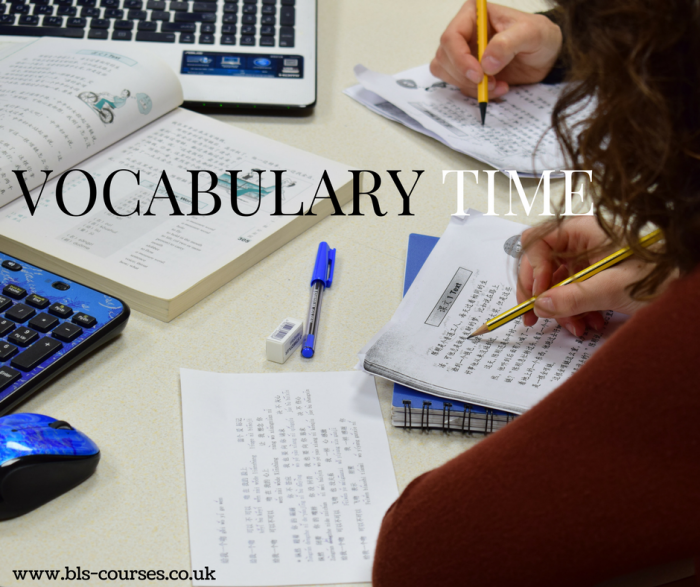There are quite a few techniques you can use to help you learn and remember vocabulary in a new language. In a previous post, we explored how to remember words by associating them with an image in your mind. In this post, we look at how to associate words with other words to help you understand new words and remember them too. You can associate words through their spelling – how they look – or their sound.
The type of association we are going to look at is recognising cognates. Cognates are words in different languages that have the same linguistic root. If you know a word in one language, it is likely that you will recognise and understand a cognate word in another language. For example, the English word ‘father’, is cognate with the German word of the same meaning ‘Vater’ and the Latin word ‘pater’. Learning to pick up on these words is a good way to expand your vocabulary in the language that you are learning. It is a quick way to learn a lot of vocabulary, and can save you memory space for learning words that are not related to ones you know and therefore more difficult to remember! Even words that do not have the same meaning but have similar meanings can help you remember them. For example, ‘fiume’ in Italian, that means ‘river’, looks and sounds a bit like the English word ‘flume’, so you can remember that it has something to do with water and flowing… a river!
For English speakers, recognising cognates can be an efficient way of learning words in languages related to German and French, because English vocabulary draws heavily from both of those languages. That means that an English speaker might recognize cognates from the Romance languages (e.g. Spanish, French, Italian, Portuguese and Romanian) as well as Germanic languages (e.g. German, Dutch, Flemish, and Danish). English shares a lot of cognate words with Romance languages because many of the words in these languages have Latin or Greek roots. For example, the Greek term ‘astir’, ‘star’, gave rise to ‘astronomy’ and ‘astronaut’, that are ‘astronomía’ and ‘astronauta’ in Spanish. This can even be the case in languages that seem opaque to English speakers at first glance. Polish, for example, has a lot of words with Latin and Greek roots, such as ‘cenzura’ (‘censorship’), ‘epidemia’ (‘epidemic’) and ‘katastrofa’ (‘catastrophe’). Read more about Latin and Greek cognates in this teaching resource (it discusses using cognates to help Spanish speakers learn English but the principle is the same for English speakers learning Spanish). The resource also gives a useful list of Spanish/English cognates.
Many languages are related to each other (some scholars would argue that all languages are related), so this means that the more languages you speak, the more you will start recognising cognate words with words you already know in another language. This is one reason why it is easier to learn a new language when you already speak more than one language.
Borrowings
Another easy way to learn more vocabulary in a new language is to recognise words that have been directly or partially ‘borrowed’ from another language. Asian languages like Korean, Chinese or Japanese may have fewer Latin/Greek/German derived cognates with English than Romance languages do, but what they do have are ‘borrowings’ from English. Sometimes they will be direct loan words with no change, or they will have been changed slightly to fit in with that language’s system. This can include changing the meaning of the English word, creating new phrases using English words that do not exist in English or abbreviating an English word where abbreviated versions do not exist in English. This can of course occur in European languages as well: there are lots of English loan words in German, for example, such as ‘Party’, ‘Baby’, ‘Basement’ and in Polish, such as ‘grejpfrut’ (‘grapefruit’) and ‘ksero’ (‘photocopier’ (from ‘Xerox’)). Italians use them too, such as ‘una fiction’ which means a TV drama.
How to learn new vocabulary through recognising cognates
When you are reading a text in the language you are learning, circle all the words you think could be cognates of your first language or other languages you know. Look these up to confirm their meaning. Look at the differences as well as the similarities between the words (spelling, pronunciation). Write lists of cognates that share a common prefix, e.g. ‘kurs’ (‘course’), ‘kurier’ (‘courier’), ‘kursor’ (‘cursor’), ‘kursywa’ (‘cursive’) in Polish, or a common theme, e.g. ‘grafico’ (‘graph’), ‘fotografo’ (‘photographer’), ‘fotografia’ (‘photograph’), ‘fonografo’ (‘phonograph’), ‘iconografia’ (‘iconography’), ‘monografia’ (‘monograph’), ‘autografo’ (‘autograph’), ‘calligrafia’ (‘calligraphy’) in Italian (the theme is ‘writing’, ‘-graphos’ (Greek)). Of course, this grouping exercise also works with cognates within languages. For example, when you know that ‘high’ or ‘tall’ in Polish is ‘wysoki’ and that words ending in ‘ość’ usually mean -ness or -dom, you can work out that ‘wysokość’ is ‘height’. Similarly, you know that ‘żyć’ means ‘to live’, so you can remember that ‘życie’ is ‘life’ and ‘żywy’ is the adjective ‘living’. Finally, you know that ‘sen’ is ‘sleep’, so you can work out that ‘senny’ means ‘sleepy’.
What to watch out for
Sometimes, cognates can share one meaning but the cognate in your new language might have another meaning as well. For example, asistir in Spanish means to assist but also to attend. Watch out for these and try to remember the additional meaning as well. There are also false cognates, that look the same or similar but have different meanings, such as the word ‘embarazada’ in Spanish that means ‘pregnant’, rather than ‘embarrassed’. There are many more true cognates than there are false cognates, though, so learning cognates is always useful.
Enjoy putting this trick to good use and see your vocabulary grow!
Written by Suzannah Young












